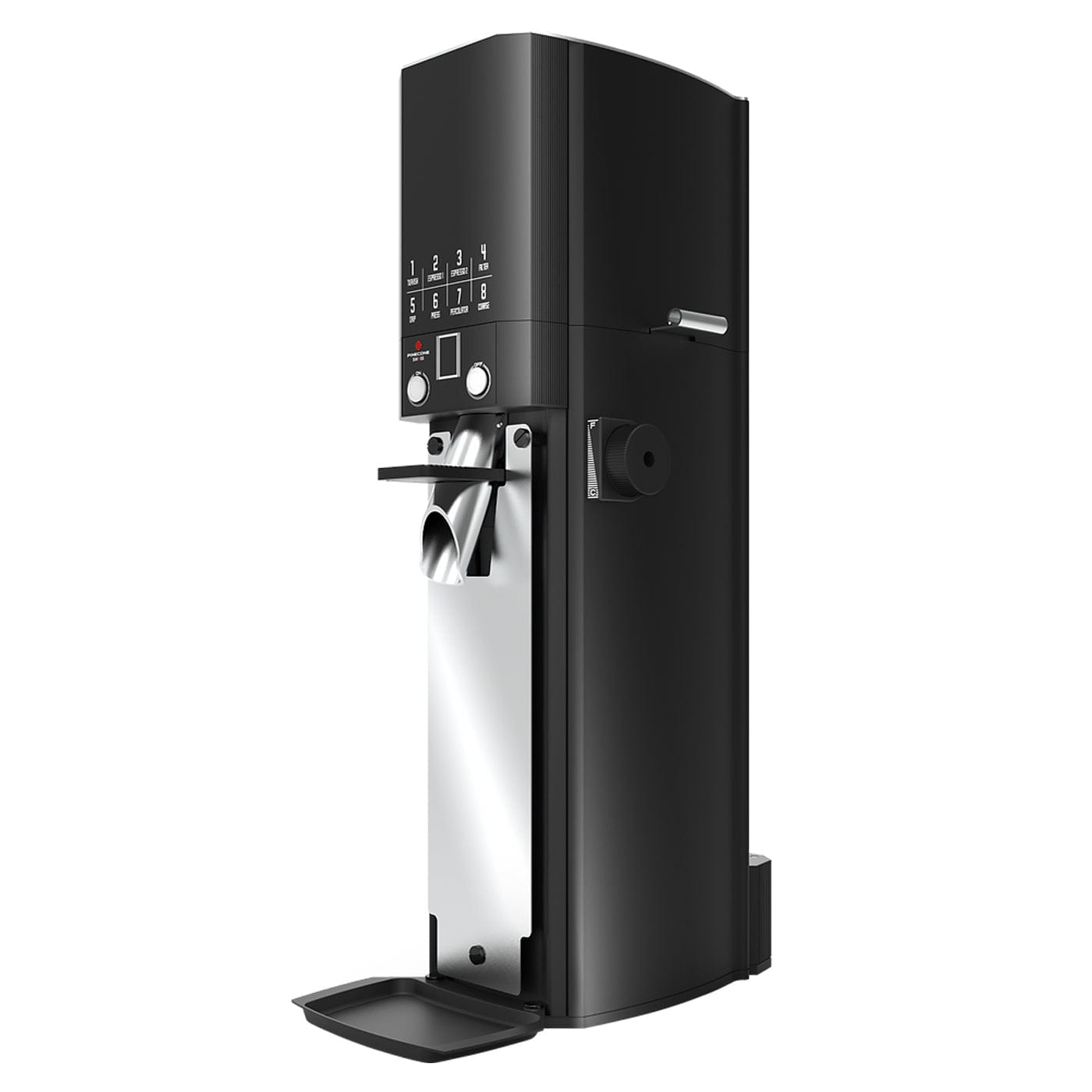Industrial Coffee Grinder: Top Features to Consider Before Purchasing
Industrial Coffee Grinder: Top Features to Consider Before Purchasing
Blog Article
Industrial Coffee Grinder Overview: Increase Effectiveness and Quality
In the affordable landscape of coffee manufacturing, choosing the right commercial coffee mill plays a critical duty in enhancing both performance and product high quality. Understanding the nuances of different mill types and crucial features-- such as personalized grind setups and durable building-- can substantially affect the final flavor account of the coffee. Additionally, the optimization of the grinding process, combined with attentive maintenance, is necessary for sustaining efficiency with time. As we discover these critical aspects, it comes to be apparent that the ramifications extend beyond mere equipment choice, affecting general business success in manner ins which require closer assessment.
Recognizing Mill Kinds
When selecting a commercial coffee grinder, recognizing the different types readily available is critical for enhancing both flavor removal and operational performance. The two key kinds of grinders are blade mills and burr grinders.

Ultimately, choosing the right type of mill is essential to preserving high quality and effectiveness in coffee manufacturing, making it vital for organizations to purchase top quality burr mills for optimum results.
Trick Features to Think About
Picking a commercial coffee mill needs cautious factor to consider of several essential attributes that can considerably affect both efficiency and the total coffee experience. One of the primary aspects to assess is the grinding mechanism. Burr grinders are typically liked over blade grinders, as they offer a constant grind size, which is critical for optimal extraction and flavor.
One more crucial attribute is the grinder's capacity. Depending upon the quantity of coffee you require to process, select a version that can handle your demands without giving up speed or quality. Additionally, think about the grind settings used. A flexible mill with several settings allows you to tailor the grind size to various developing approaches, boosting the coffee's taste account.
Examine the mill's noise level, particularly in a busy coffee shop or production setting, where excessive sound can be turbulent. Investing in a mill that balances these functions can greatly boost both functional effectiveness and the high quality of the coffee offered.
Optimizing Grinding Process
To attain the ideal outcomes in coffee prep work, optimizing the grinding process is crucial. The work dimension significantly influences extraction, flavor, and overall quality of the brewed coffee.


Additionally, keeping track of the grinding speed can maximize the process. Slower grinding usually produces much less warmth, preserving fragile flavors and scents. Alternatively, much faster grinding might produce extreme warm, adversely affecting the coffee's high quality.
Maintenance and Care Tips
Proper upkeep and treatment of industrial coffee mills are important for making sure ideal performance and longevity. Normal cleansing is the foundation of maintenance; residue accumulation can affect taste and grinding performance. It is a good idea to clean up their website the mill after each use, wiping down the outside and getting rid of any type of coffee premises from the burrs.
Additionally, examine the grinding burrs for wear and tear. Plain burrs can jeopardize grind uniformity, so they need to be changed as needed. Industrial Coffee Grinder. Periodically calibrating the mill is likewise critical, as this preserves the desired work size for different brewing approaches
Lubrication of relocating parts need to be done according to the supplier's requirements, as this decreases rubbing and extends the life of the equipment. It is important to make use of food-grade lubricants to ensure security and conformity with wellness laws.
Lastly, maintain the grinder in a stable and completely dry atmosphere to avoid rust and deterioration. By adhering to these upkeep and care ideas, operators can improve the performance of their industrial coffee mills while making sure top notch outcome and extended functional life.
Roi Evaluation
Assessing the return on financial investment (ROI) for commercial coffee grinders is vital for businesses seeking to enhance their coffee manufacturing abilities. An extensive ROI evaluation address aids establish the financial practicality of purchasing top quality grinders, enabling services to evaluate the preliminary prices against potential gains.
Assess the acquisition cost of the grinder, consisting of installment and any type of required alterations to existing facilities. High-performance grinders typically lead to minimized grinding time and enhanced throughput, which can substantially improve performance.
In addition, think about the impact on item quality. Industrial Coffee Grinder. Superior mills produce a more regular grind dimension, which can enhance taste accounts and consumer complete satisfaction, ultimately driving sales. By raising the high quality of the last item, services can justify greater rates, resulting in increased revenue
Final Thought
In summary, an industrial coffee grinder plays a critical function in boosting both performance and item quality within coffee manufacturing. Inevitably, the tactical investment in a dependable grinder contributes significantly to improved profits and competitiveness in the coffee industry.
In the competitive landscape of coffee manufacturing, picking the ideal navigate here commercial coffee mill plays an essential function in improving both effectiveness and product quality. The 2 key kinds of grinders are blade mills and burr mills. Within the burr mill group, there are flat burr mills and cone-shaped burr grinders, each with its benefits. Burr grinders are generally favored over blade mills, as they offer a consistent work dimension, which is critical for optimum extraction and flavor.
In recap, an industrial coffee grinder plays a crucial duty in improving both efficiency and item high quality within coffee manufacturing.
Report this page